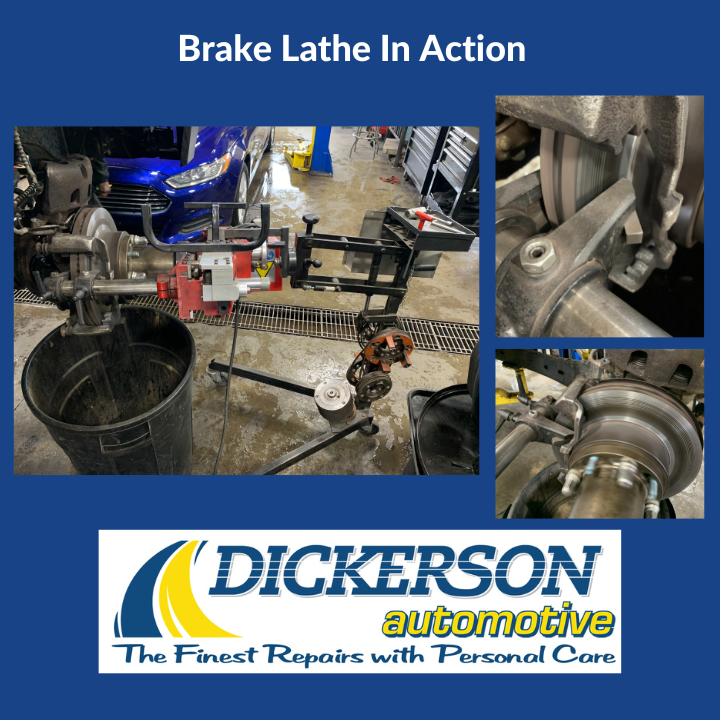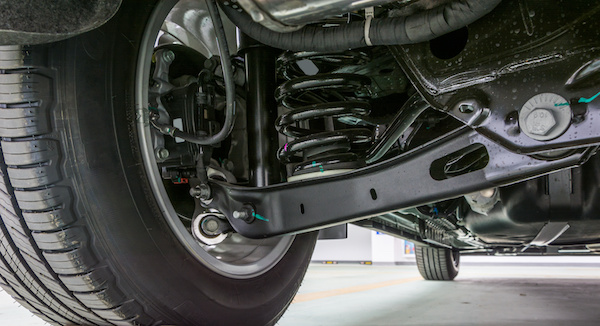Posted on 1/17/2023

Why Does My Car Shake When Braking? Shaking when stepping on the brake pedal is usually an indicator of warped disk brake rotors. The technical term for this is called thickness variations in the brake rotors. The braking systems on a vehicle is a simple idea with complex components all working together at the same time, lets talk about how a braking system functions and what may be causing the famous shaking when braking problem. How Do Disk Brakes Work? It is easiest to explain this by breaking down the system to its most basic parts. Braking systems have a master cylinder, brake caliper, brake pads, and brake rotors. The master cylinder is full of brake fluid and is directly connected to the brake pedal. When the brake pedal is pressed a piston is forced forward inside the master cylinder creating hydraulic pressure in the brake lines. This hydraulic pressure is then sent to the brake caliper. There is a piston inside of the brake caliper t ... read more
Posted on 1/11/2023

Popping or Hissing Noises From The Engine Compartment? Many things can contribute to popping and or hissing noises while your engine is running. The most likely cause of these kinds of noises are related to exhaust issues. Most commonly issues with the exhaust manifold where exhaust gasses exit the vehicle. Today were going to discuss what an exhaust manifold is and what it's job is on your vehicle! What is an exhaust manifold? There are many components that make up an exhaust system, but one of the most important parts of that system is the exhaust manifold. The manifold is designed to route the toxic gases that come from an engine and send them through the rest of the exhaust system for cleaning and safe release from the vehicle. Exhaust manifolds are made out of cast iron or stamped steel, the reason being is these materials handle extreme heat temperatures. Average exhaust temperatures range from 400 degrees Fahrenheit to 500 degrees Fah ... read more
Posted on 12/28/2022

Lack Of Engine Power? Strange Rattle From The Engine? There are several reasons a vehicle will lack power when trying to accelerate. Today however were going to talk about lifters and how they can contribute to a lack of power when they aren't working properly.There are some warning signs that can be indicators of a bad lifter such as a rattling or ticking noise, misfire condition, or a check engine light. The most common indicators of a bad lifter are abnormal noises coming from the engine compartment and or a check engine light. So what does a lifter do? Lifters work directly with what is called the camshaft. The camshaft is a long piece of metal with some raised up sections called lobes. As the camshaft rotates the lobes make contact with the lifter and pushes the lifter up or down depending on camshaft location. When a lifter is moving up and down the valves inside the cylinder head are opening and closing allowing air and fuel into ... read more
Posted on 6/28/2021

Most drivers depend on their senses or warning lights on their dashboards to recognize when their vehicle is due for a service. However, some car parts, such as shocks and struts, have no explicit warnings. The suspension system, which includes your shocks and struts, is highly complex. You would have to depend on experience and research to know when your shocks and struts are worn out. What are Shocks & Struts? All vehicles come outfitted with shocks, struts, or both. Shocks, or shock absorbers, are the parts that regulate the springs. They are accountable for making sure your vehicle doesn't bounce excessively on bumpy surfaces such as speed bumps. They convert kinetic energy absorbed from the road into thermal energy, which minimizes shock. Struts serve a similar purpose and support the weight of your vehicle and contribute to the alignment. Both are affixed to your suspension system and are a necessary part of your vehicle's steering, handling, comfortability ... read more
Posted on 6/23/2020

Brakes for Your Vehicle: The Definitive Guide Brakes: an afterthought until you need them most. That critical safety system you probably think about during your day-to-day as often as you think about going to the dentist (until you break a tooth). Your brakes! But with regular maintenance and by keeping a sharp eye on the warning signs, you’ll never find yourself in a dangerous “if only” situation as you’re trying to decelerate your vehicle unexpectedly… “If only I’d gone to the shop sooner. “If only I took the signs seriously.” That’s not a risk you need to take. But what does regular brake maintenance entail? What are the costs you should plan for? How does the braking system in your car even work? And what exactly are the warning signs you should be aware of? What you’ll learn in this article about brakes: How do brakes work?What goes into a brake inspection? ... read more